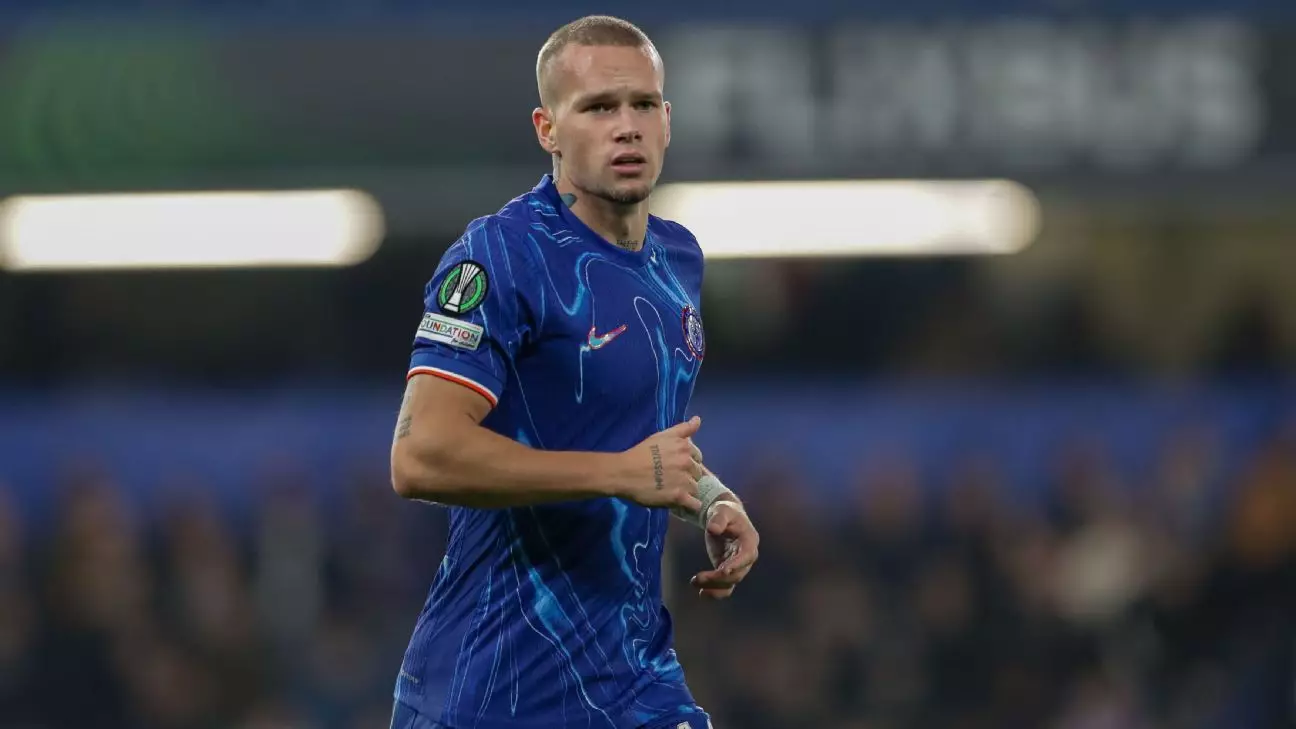The world of professional sports often finds itself entangled in controversy, and the recent revelations regarding Chelsea’s winger Mykhailo Mudryk are no exception. Reports have surfaced indicating that the 23-year-old has received notification of a positive drug test from the Football Association (FA). The implications of such an announcement extend beyond personal embarrassment; they have the potential to reshape his career trajectory. A supposedly prohibited substance was detected in an “A” sample taken at the end of October, with the “B” sample yet to be analyzed, thus leaving both fans and the sporting community in suspense.
Mudryk took to Instagram to share his dismay at the revelation, expressing surprise and frustration at the situation. He firmly stated that he has never knowingly consumed banned substances, emphasizing his commitment to fair play. As he works with his team to uncover the circumstances that led to the adverse finding, the stakes escalate—if confirmed, a suspension could last up to four years, a devastating blow for any player, especially one who joined Chelsea with high expectations.
According to a source from ESPN, Mudryk has been provisionally suspended while an investigation unfolds. Though the FA and Chelsea have both been reticent to confirm this claim, the potential fallout from such a suspension is significant. For Mudryk, who has already missed the last five matches of the season due to “illness,” the thought of being sidelined even longer adds layers of frustration and stress. The head coach, Enzo Maresca, has been publicly vague about the reasons for Mudryk’s absence, leading to speculation and concern about the player’s wellbeing and professional integrity.
This provisional suspension could have punishing consequences not just for Mudryk but also for Chelsea, as they navigate the complexities of fielding a team amid potential player misconduct. The club has a vested interest in defending its reputation; thus, supporting Mudryk while rigorously upholding the FA’s anti-doping policies is a tightrope walk.
Chelsea FC has rallied behind Mudryk, stating unequivocally that the player has never knowingly engaged in doping. Their support is critical at this juncture, serving to reassure fans that the integrity of their club remains intact. “Both the club and Mykhailo fully support The FA’s testing programme,” the club declared, reinforcing their commitment to maintaining the spirit of the game. Such endorsements are essential not only for Mudryk’s psychological resilience but also for sustaining a cohesive team environment during an unsettling period.
However, Chelsea’s statement also implies a sense of cautious optimism as they await the results of the “B” sample analysis. The second test could either substantiate the initial findings or clear Mudryk’s name, but until then, uncertainty looms large. The possible repercussions of this finding could lead to irreparable harm to Mudryk’s career if he is found guilty.
The ramifications of a doping scandal extend far beyond the individual athlete; they touch on the broader integrity of sports itself. Fans want to see their heroes, like Mudryk, perform to their highest potential, but the specter of doping allegations can taint the purity of competition. This episode prompts a broader reflection on the pressures faced by athletes to perform, especially in environments where financial stakes and personal reputations are at an all-time high.
As Mudryk continues to contend with these allegations, he stands at a crossroads that could define the trajectory of his career. Should he manage to navigate this storm successfully, it might serve as a pivotal moment of resilience and determination. Conversely, an unfavorable outcome could send shockwaves through his career, impacting not only his position within Chelsea but also how he is perceived in the football community.
While Mykhailo Mudryk grapples with these allegations, the situation serves as a reminder of the fragility of professional athletic careers. It highlights the constant pressures athletes face, the stringent demands of regulatory bodies, and the need for education about substance use within sports. The next steps in this unfolding narrative will undoubtedly be scrutinized not only for their immediate implications but also for their long-term impact on the realms of sportsmanship and ethics.


Leave a Reply